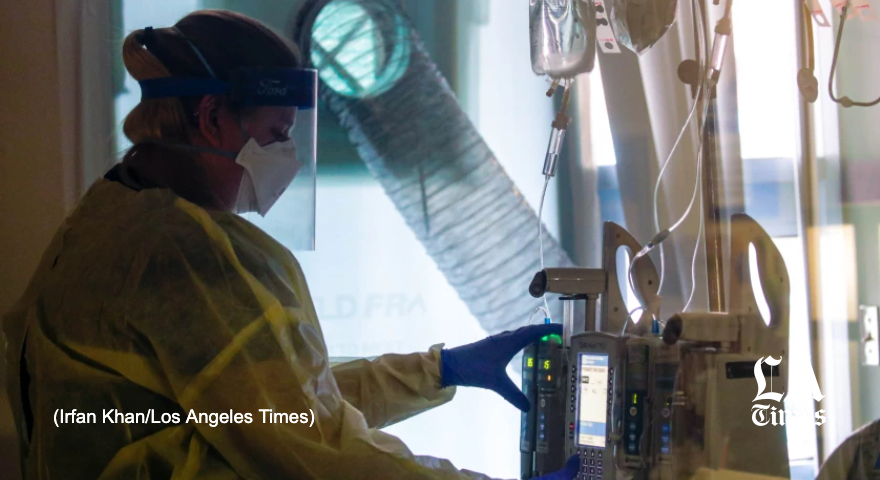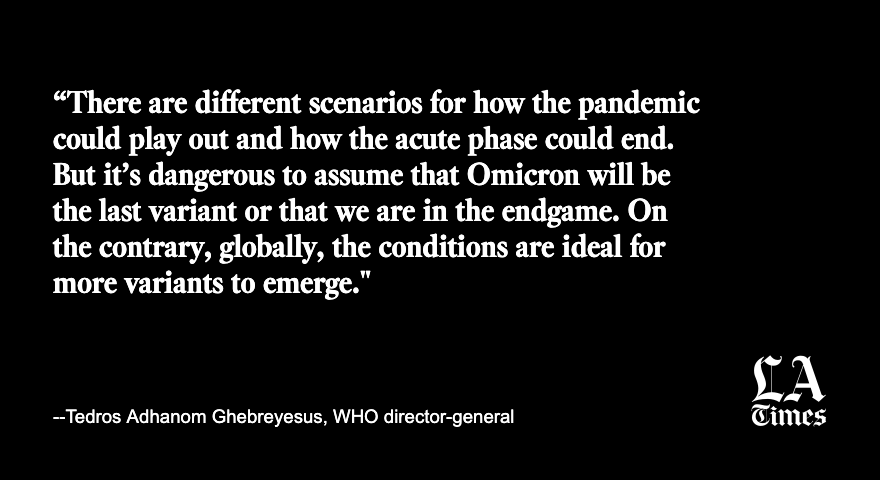
Gov. Gavin Newsom and state lawmakers reached an agreement to again require employers to provide workers with up to two weeks of supplemental paid sick leave to recover from COVID-19 or care for a family member with the virus.
latimes.com/california/sto…
latimes.com/california/sto…

The legislation, which lawmakers would likely fast-track to the governor in the coming weeks, would apply to all businesses with 26 or more employees. A similar law from 2021 that provided 80 hours of supplemental paid sick leave expired Sept. 30.
latimes.com/california/sto…
latimes.com/california/sto…
Labor unions pushed the new proposal at the Capitol as California grapples with the rapid spread of the Omicron variant. State officials hope the deal will encourage workers with the virus to stay home and help slow transmission.
latimes.com/california/sto…
latimes.com/california/sto…

Companies across California would have to absorb the costs of additional paid time off for workers.
Under the deal agreed upon Tuesday, the sick leave would be retroactive to cover coronavirus-related absences since Jan. 1 and extends until Sept. 30.
latimes.com/california/sto…
Under the deal agreed upon Tuesday, the sick leave would be retroactive to cover coronavirus-related absences since Jan. 1 and extends until Sept. 30.
latimes.com/california/sto…
In an attempt to help some businesses, the agreement includes separate proposals to restore tax credits that were suspended and capped two years ago when state officials feared the pandemic would cause California’s economy to collapse.
latimes.com/california/sto…
latimes.com/california/sto…
The proposal would require employers to provide up to 40 hours of flexible paid leave to full-time workers who are sick or caring for an ill loved one, and requires proof of a positive test to qualify for an additional 40 hours of paid time off.
latimes.com/california/sto…
latimes.com/california/sto…

The deal also boosts early budget funding for COVID-19 response to $1.8 billion.
Read more from @tarynluna and @MelodyGutierrez at
latimes.com/california/sto…
Read more from @tarynluna and @MelodyGutierrez at
latimes.com/california/sto…
• • •
Missing some Tweet in this thread? You can try to
force a refresh








